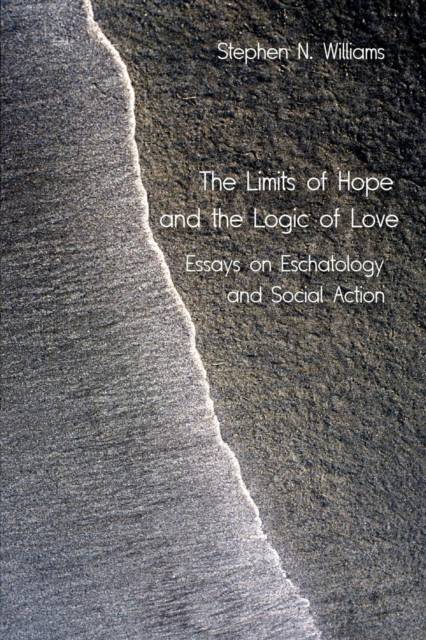
- Afhalen na 1 uur in een winkel met voorraad
- Gratis thuislevering in België vanaf € 30
- Ruim aanbod met 7 miljoen producten
- Afhalen na 1 uur in een winkel met voorraad
- Gratis thuislevering in België vanaf € 30
- Ruim aanbod met 7 miljoen producten
Zoeken
The Limits of Hope and the Logic of Love
Essays on Eschatology and Social Action
Stephen N Williams
Paperback | Engels
€ 9,95
+ 19 punten
Omschrijving
Though evangelical Christians are united in the eschatological hope of a new heaven and new earth, there is disagreement on the form and significance of this belief. In this thoughtful collection of essays, Stephen Williams traces the development of eschatological theology in recent decades, interacting with significant thinkers such as Jürgen Moltmann and in dialogue with fellow-evangelicals such as Miroslav Volf. He then argues that our exact beliefs about the world's future should affect our present activity less than many people think. Love, rather than speculation about the last things, should serve as the foundation of Christian social action and responsibility. Moreover, if social action is properly motivated by love, eschatological differences should not prevent Christians from working co-operatively with each other in matters of social activism. Stephen N. Williams (Ph.D., Yale University) is Professor of Systematic Theology at Union Theological College in Belfast, Northern Ireland. He is the author of Revelation and Reconciliation and The Shadow of the Antichrist: Nietzsche's Critique of Christianity.
Specificaties
Betrokkenen
- Auteur(s):
- Uitgeverij:
Inhoud
- Aantal bladzijden:
- 112
- Taal:
- Engels
Eigenschappen
- Productcode (EAN):
- 9781573833752
- Verschijningsdatum:
- 21/05/2006
- Uitvoering:
- Paperback
- Formaat:
- Trade paperback (VS)
- Afmetingen:
- 152 mm x 229 mm
- Gewicht:
- 176 g

Alleen bij Standaard Boekhandel
+ 19 punten op je klantenkaart van Standaard Boekhandel
Beoordelingen
We publiceren alleen reviews die voldoen aan de voorwaarden voor reviews. Bekijk onze voorwaarden voor reviews.











